The holidays should be a time of celebration, great food, and better company, not a time to be rushing to the emergency veterinary hospital because of a pet’s mishap. Pets tend to sniff out mischief any time of year, but many hazards abound for cats and dogs during the holiday season. As the end-of-year holidays quickly come our way, ensure you’re prepared to protect your four-legged friend from potential holiday disasters by following these holiday-themed tips from our Stack Veterinary Hospital team.
Thwart Thanksgiving Toxicities
Thanksgiving presents the perfect opportunity for your pet to slip into the crowded, chaotic kitchen and sneak a taste of a potentially toxic food. One of the biggest hazards is the star of the show—the Thanksgiving turkey. Cooked, brittle turkey bones can easily splinter and pierce your pet’s gums, esophagus, stomach, or intestinal tract. They may also become lodged as your pet tries to pass them, and require an emergency surgery. The fatty skin and dark meat can lead to a potentially life-threatening condition known as pancreatitis. The pancreas has the important job of releasing digestive enzymes into the intestinal tract, but an overload of fatty foods can trigger an early enzyme release, which essentially causes digestion of the pancreas and nearby organs, inciting whole-body inflammation.
In addition to the Thanksgiving turkey, the following toxic foods can have a wide range of consequences, from gastrointestinal upset to death, for your pet:
- Garlic, sage, onions, and chives
- Grapes and raisins
- Unbaked yeast dough
- Xylitol and chocolate
- Alcohol
- Macadamia nuts
If you suspect your pet has eaten a potentially toxic food, contact the ASPCA’s Animal Poison Control Center for advice. Do not wait to see if your pet will develop toxicity signs—in some cases, toxicity has advanced to an untreatable stage by the time signs appear.
After your meal has ended, package all leftovers safely away in the refrigerator and put all trash in outside trash cans with tight-fitting lids, to prevent your pet from sneaking leftover scraps, and suffering from major gastrointestinal distress.
Circumvent Christmas Calamities
Many people go all out with Christmas decorating, but shiny baubles, sparkling lights, and glittery tinsel can attract inquisitive pets, who may knock the Christmas tree over and break glass ornaments, or become trapped underneath, while investigating the glitz and glitter. Nibbling on light strands can lead to electrical burns and shocks, while ingested tinsel, ribbon, and bows can wad up in your pet’s gastrointestinal tract and cause an obstruction. So, your kitten may look adorable gift-wrapped in a heap of ribbon and tinsel, but swallowing any piece can be life-threatening.
Other Christmas tree problems include the water in the tree stand, and the tree itself. Chemicals are often added to the water to ensure your tree lasts through the holiday season, especially if you purchase a tree early. These chemicals, as well as the mold that grows in stagnant water, can be toxic to your pet. If you purchase a live tree, the oils found in fir, spruce, and pine trees can irritate your pet’s mouth if they chew on the needles and branches, leading to drooling and vomiting, while the needles can perforate or become lodged in the intestines. If your pet is too curious for their own good, prevent a calamity by not allowing them access to your Christmas tree.
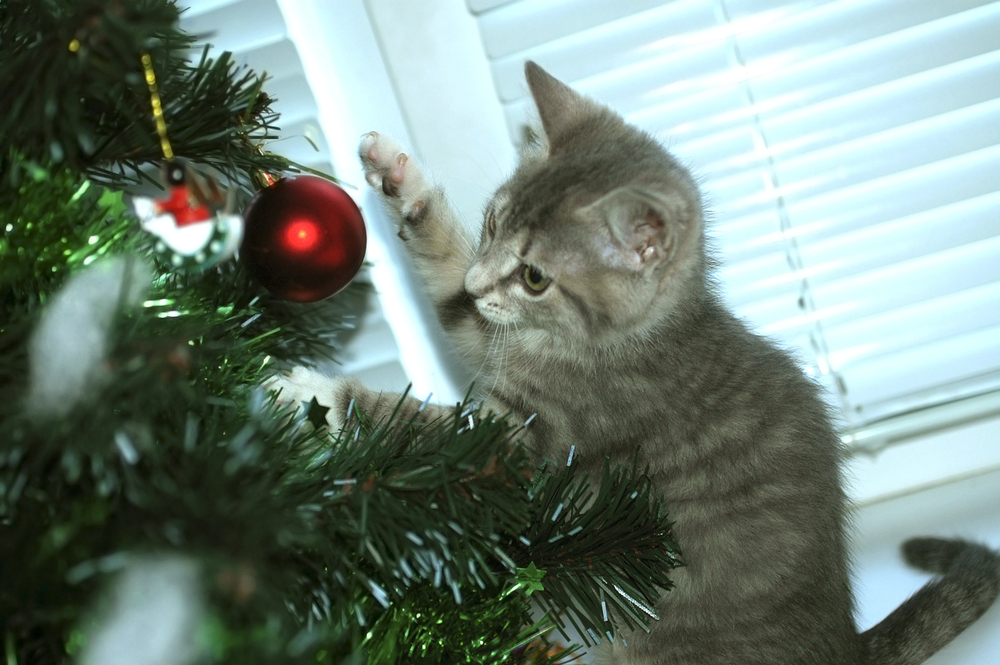
Avoid New Year’s Eve Accidents
New Year’s Eve is often the occasion for the most extravagant party of the year, which can freak out your pet. Fireworks, pounding music, and a house full of strangers can send your furry pal into a panic, so create a safe, pets-only spot with a cozy bed, a long-lasting chew, and a favorite toy where your pet can hide from the hubbub. Plus, while they’re relaxing alone, they cannot sneak into your appetizers, desserts, and cocktails. Your pooch may be 21 in dog years, but alcohol, which can lead to vomiting, diarrhea, staggering gait, difficulty breathing, seizures, or death, is off-limits for pets. Unattended food and drinks can seriously threaten your pet, whom you may want to consider removing from the party altogether.
Since pets can’t read, you are responsible for putting the above safety measures in place so you and your pet enjoy a safe, happy holiday season. However, if an accident does happen, call your Stack Veterinary Hospital team for assistance. If your pet needs help after hours, call the area’s only 24-hour emergency facility, Veterinary Medical Center of CNY.


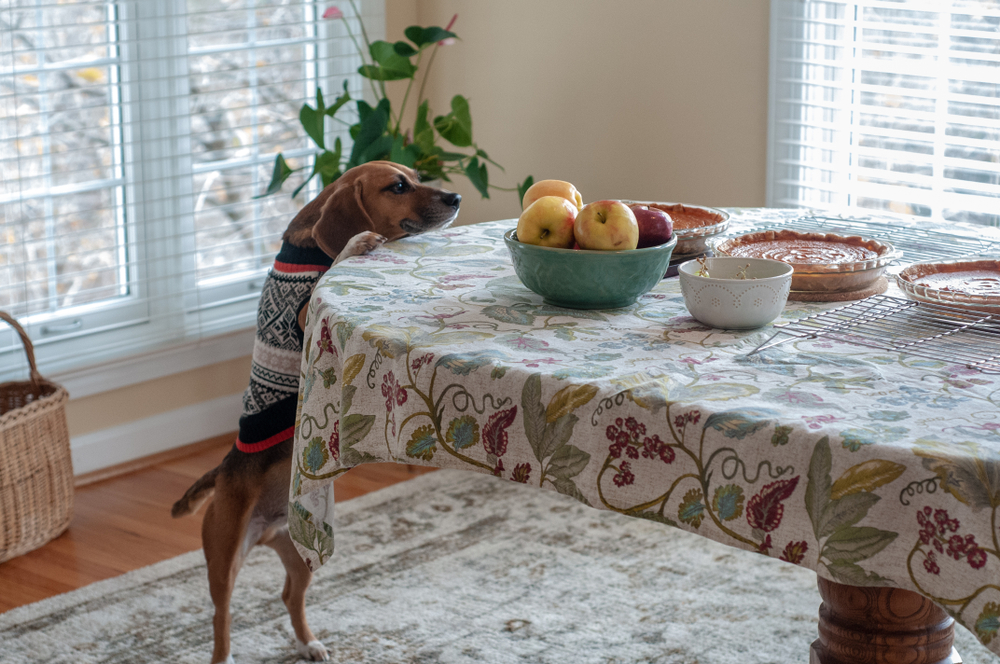
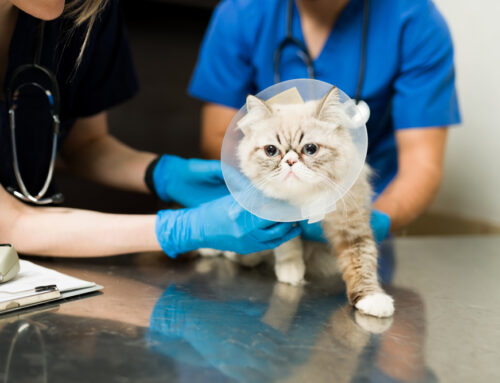
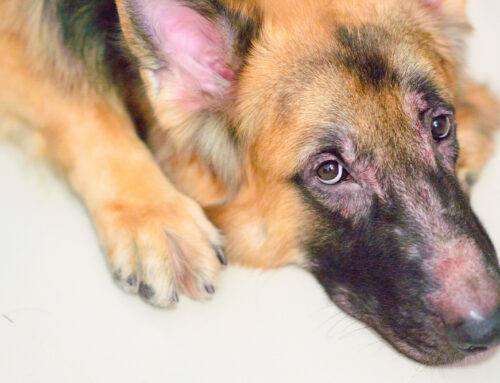
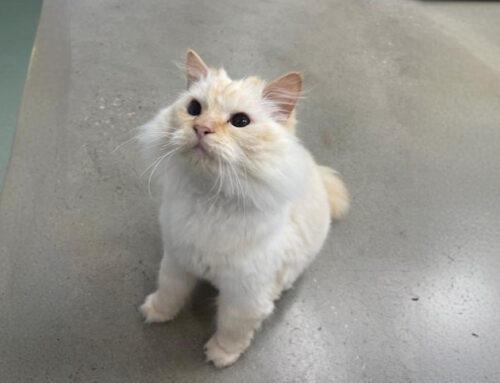
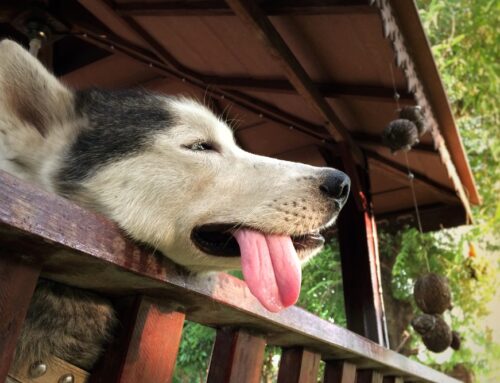
Leave A Comment